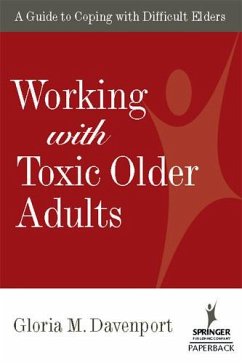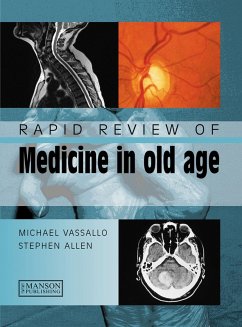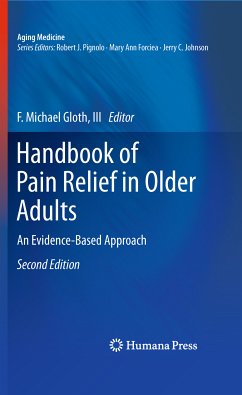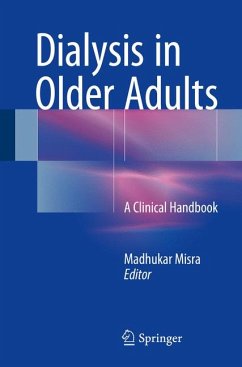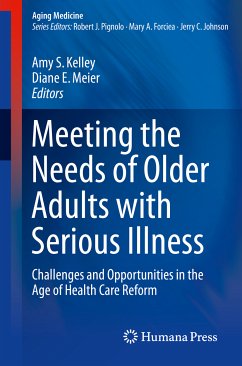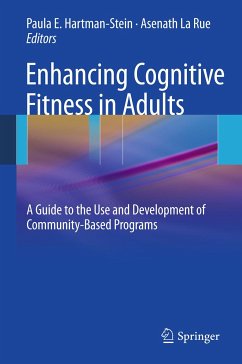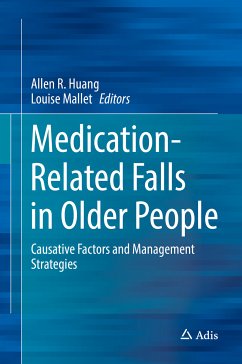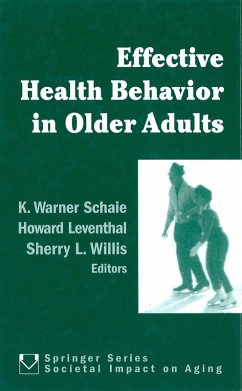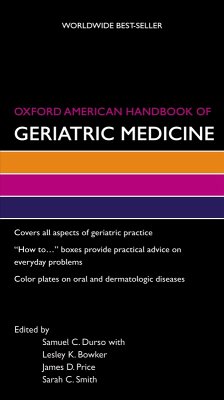
Medication Management in Older Adults (eBook, PDF)
A Concise Guide for Clinicians
Redaktion: Koch, Susan; Nay, Rhonda; Gloth, F. Michael
Versandkostenfrei!
Sofort per Download lieferbar
40,95 €
inkl. MwSt.
Weitere Ausgaben:

PAYBACK Punkte
20 °P sammeln!
Medication use is the predominant form of health intervention in our society. And as we age, the likelihood of medication use increases dramatically, with more than 80 percent of those over age 65 using one or more medications. Along with that, the potential for medication errors also increases. Indeed adverse drug reactions (ADRs) and adverse drug events (ADEs) are a significant problem in older adults. Written in a practical format by contributors from Australia and the United States, Medication Management in Older Adults: A Concise Guide for Clinicians presents the available evidence on res...
Medication use is the predominant form of health intervention in our society. And as we age, the likelihood of medication use increases dramatically, with more than 80 percent of those over age 65 using one or more medications. Along with that, the potential for medication errors also increases. Indeed adverse drug reactions (ADRs) and adverse drug events (ADEs) are a significant problem in older adults. Written in a practical format by contributors from Australia and the United States, Medication Management in Older Adults: A Concise Guide for Clinicians presents the available evidence on research interventions designed to reduce the incidence of medication errors in older adults, with a focus on acute, subacute, and residential (long-term) care settings. Because medication errors can occur at all stages in the medication process, from prescription by physicians to delivery of medication to the patient by nurses, and in any site in the health system, it is essential that interventions be targeted at all aspects of medication delivery. Chapters cover the principles of medical ethics in relation to medication management; common medication errors in the acute care sector; medication management in long-term care settings; nutrition and medications; the outcomes of a systematic review; dose form alterations; Electronic Health Records (EHR), Computerized Order Entry (COE), Beers criteria; and pharmacokinetics and pharmacodynamics. For those clinicians especially concerned with providing the best possible outcomes for their older adult patients, Medication Management in Older Adults: A Concise Guide for Clinicians is an invaluable resource and a significant contribution to the burgeoning literature on medication errors.
Dieser Download kann aus rechtlichen Gründen nur mit Rechnungsadresse in A, B, BG, CY, CZ, D, DK, EW, E, FIN, F, GR, HR, H, IRL, I, LT, L, LR, M, NL, PL, P, R, S, SLO, SK ausgeliefert werden.




